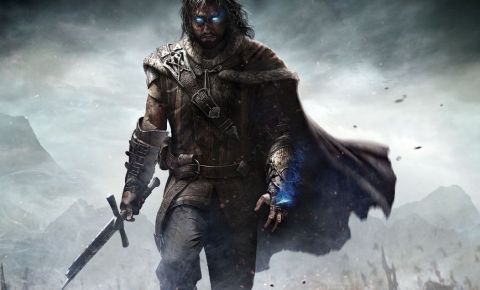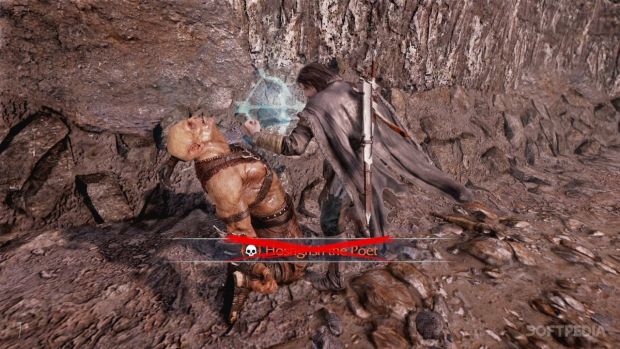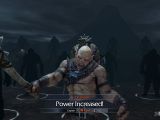J.R.R. Tolkien's Lord of the Rings universe is probably one of the most impressive and popular fantasy realms of all time, managing to impress millions of people through the initial books, the stellar movies, and the many different video games that have all been set within it.
While the novels and the films certainly had a high quality level, the actual games haven't been all that great, either in terms of stories, gameplay, or both, although the Lego ones from Traveller's Tales managed to transform the films into some pretty fun interactive experiences.
Now, developer Monolith wants to usher in a new era for Lord of the Rings titles with Middle-earth: Shadow of Mordor, an open world action adventure experience that borrows from the likes of Assassin's Creed or Batman: Arkham City in terms of gameplay, while offering a special LotR-inspired story.
Does the new title make a lasting impression or should it be cast into the lava of Mount Doom? Let's find out.
Story
Previous games set in the Lord of the Rings universe have proved that, while the realm is filled with all sorts of great story possibilities, this isn't a guarantee that the actual plot might be an enjoyable one. Middle-earth: Shadow of Mordor wants to deliver its own plot that only has veiled references to the larger adventures had by Bilbo or Frodo Baggins in the main fantasy tales.
It focuses on Talion, a ranger from Gondor, who's tasked with defending the Black Gate of Mordor. Unfortunately, the mission doesn't go that well, as he's killed by Sauron's Orc (Urok) armies. Seeing as how that would make for a poor video game story, he's revived through a certain series of events and now wields powers like those of a wraith, which get more and more powerful throughout the game.
What follows is a pretty great example of open world storytelling, which welcomes both veterans of the Lord of the Rings universe and newcomers. What's more, the game's story isn't just delivered through the main missions, as thanks to the Nemesis system, which I'll detail in the Gameplay portion of the review, you forge a meaningful connection of both friendship and rivalry with the many Urok captains you meet along the way.
Talion is a pretty good protagonist, and if you want to learn more about his life before the game, pay attention to the dialogue offered during the title's main loading screen, as some pretty great scenes involving Talion, his wife, or his son play out.
Overall, Shadow of Mordor is a fun romp through the Lord of the Rings universe and the plot is quite good, although you might end up caring more about the grudges held against Urok captains and warchiefs rather than the main characters in the story.
Gameplay
Shadow of Mordor was already described ahead of its release as a love letter to Ubisoft's Assassin's Creed franchise, and Talion for sure can rival the likes of Ezio or Edward Kenway when it comes to exploration, for example. When it comes to combat, Talion also acts as a sort of Middle-earth Batman, as seen in the Arkham titles, thanks to the flowing fighting system.
However, the game manages to innovate in both areas, and once you start spending some more time with it, manages to become its own standalone experience. The exploration is pretty fun, and while the stealth is relatively basic, it helps when dealing with large Urok camps at least to thin the ranks before jumping into combat.
Speaking of fighting, Talion can use his nimble sword but also his bow and dagger to dispatch of foes. His weapons don't change throughout the game but you can upgrade them to unlock new moves and abilities, while adding certain runes to augment them with other bonuses, such as lifesteal, which comes in handy when engaging in prolonged fights.
Speaking of health, there's no regeneration in Shadow of Mordor, which means you might have to run away from battles to a nearby herb, so that you can collect it and recover your lost health. Dying carries a pretty big penalty in the game, as not only do your killers get promoted through the Urok ranks, but plenty of other improvements are made to your enemies.
The main claim to fame of Shadow of Mordor is the Nemesis system. During his adventures, Talion meets a variety of Urok captains, each with random advantages and disadvantages that range from buffs to damage to immunity to stealth attacks and other such things. Meeting them on the battlefield is pretty random, and you can certainly run from the fight if things aren't going so well. Prepare, however, to see your enemy come back and remind you of your lack of courage or inefficiency in combat.
Once you develop your skills, you can also control some captains and make them double agents inside the Urok faction, usurping the power of the main Warchiefs that need to be killed to progress the story. This aspect adds a layer of strategy to the whole experience, as you can either go through steps to get a Warchief to appear in battle, or just help your chosen Uroks to ascend the ranks and become Warchiefs themselves, after which you can promptly kill them.
The Nemesis system feels like a breath of fresh air, and once you start seeing it in action, you start to wonder why not more and more open world experiences develop such a mechanic, as it provides neat little random events and makes players care more about enemies that would just be random cannon fodder if not for their unique skills.
Besides this great new feature, Shadow of Mordor fares quite well in terms of regular gameplay, offering not just a pretty fluid combat system, but also plenty of great enemies that constantly require players to switch things up in terms of their play style.
Unfortunately, sometimes the camera can have a mind of its own, and considering you'll often find yourself in the middle of many Uroks, you won't know when to parry their blows or when to focus on a bigger foe.
Visuals and Sound
Shadow of Mordor is a great-looking experience that manages to take the bleak and dark environments of Mordor and transform them into some really impressive-looking levels. What's more, after a while, the scenery changes dramatically and way more color is introduced, offering a lot of variety. Animations are pretty good and the framerate is solid on the Xbox One.
The soundtrack is delightful and the voice acting is top-notch, with Troy Baker bringing Talion to life, while Nolan North handles the voice of villain The Black Hand of Sauron. Expect plenty of intense orchestral music, as befitting any grand adventure in Middle-earth, but also some pretty hilarious dialogue between Uroks when sneaking around their camps.
The Good
- Amazing Nemesis system
- Huge open world
- Lots of varied activities
The Bad
- Can be difficult at first
- Combat becomes frustrating when surrounded by enemies
- A few animation glitches
 14 DAY TRIAL //
14 DAY TRIAL // 



















